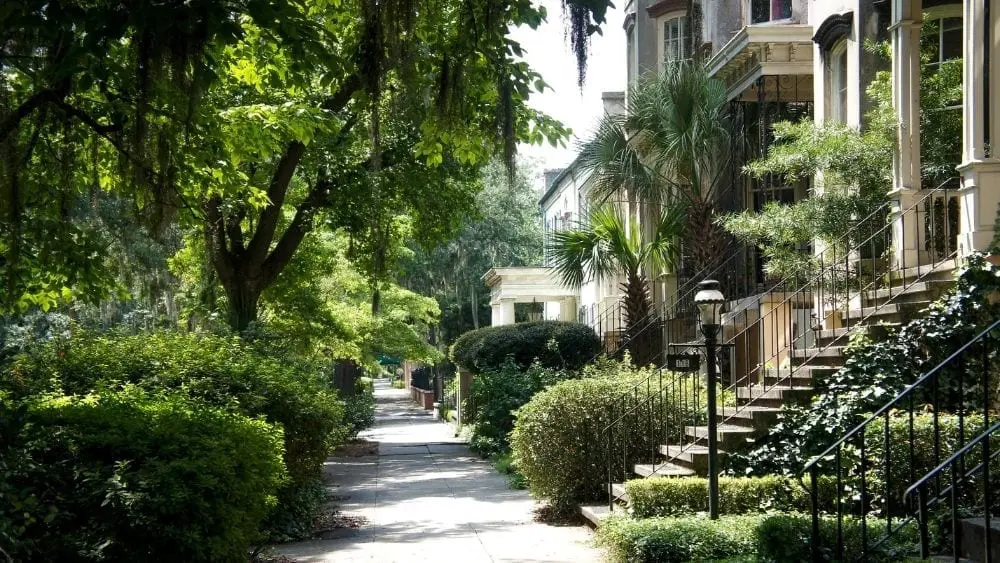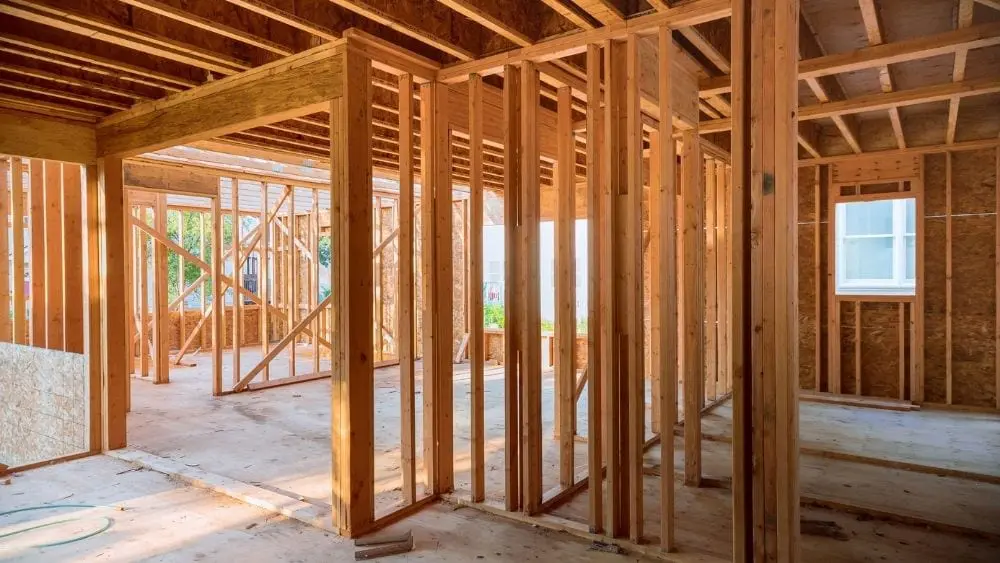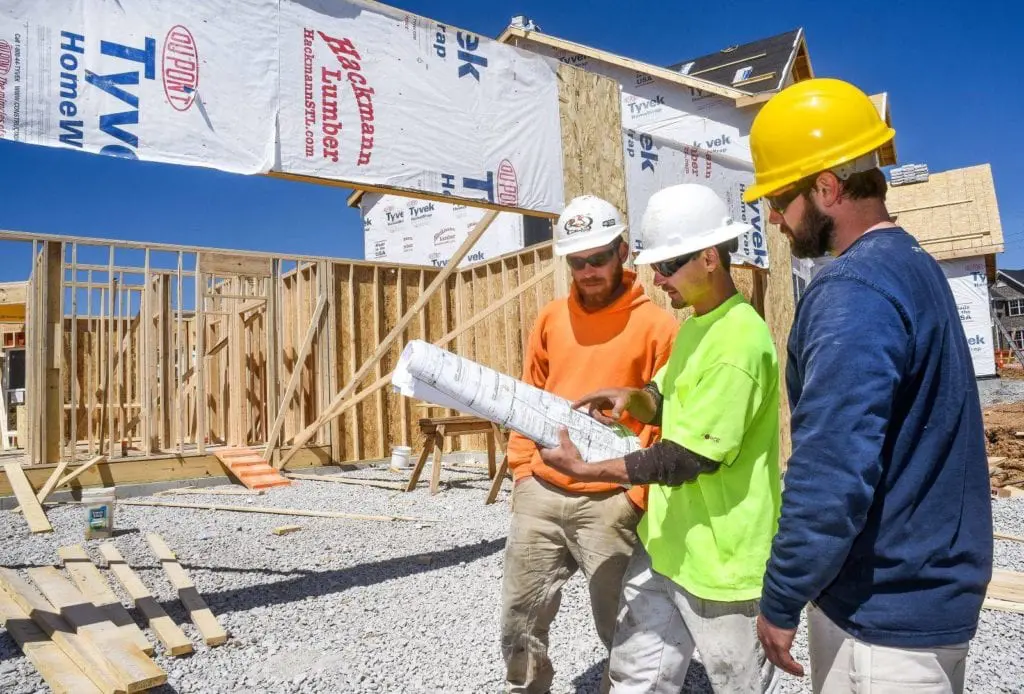
Georgia, the country’s largest producer of peaches, pecans, and peanuts, offers a diverse landscape of beaches, mountains, forests, and cities. Nearly 11 million people live in the state, with more than six million of them living in the Atlanta metro area.
If you want to build a house here, you’re in luck! Georgia has some of the best places to live. The average cost to build a house in Georgia is lower than in most states, according to GoBankingRates, at an average cost of $171,883.
But that price represents the statewide average. If you want to build in one of the fast-growing Georgia housing markets such as Atlanta, your cost will be higher.
Building a house in Georgia costs an average of $100,000 to $400,000, depending on location, of course, but also on the size of your home, the materials, and the style. You could pay less than $100,000 to more than $1 million to build a house in Georgia.
Custom vs. Production Homes
When you’re pricing out the cost of building a home in Georgia, you may be considering buying a newly built home or perhaps having a custom home built for you. It’s important to understand the difference between a custom home and a “production” home.
A production home is typically one that is built in a community that’s under construction by one or more builders. When you buy a production home, the cost of the land and building the home is included in the price. Sometimes, though, you’ll pay a lot premium if you choose a larger or more desirable lot.
With a custom home, you either buy the land first or buy a lot owned by a builder and hire an architect or a design/build firm to create a completely personalized home. Custom home financing requires a construction loan and a permanent loan, which sometimes can be combined with one lender. The prices for custom homes in Georgia vary even more widely than production home costs, so in this article we’re focusing on how to build a production house.
Step-by-Step Process to Build a House in Georgia

Building a home in Georgia takes an average of seven months, but numerous factors can influence the time it takes to complete your build. These include the materials you use for your house, the design’s complexity, the availability of labor, the permitting process, and the weather. In some cases, builders have already laid the foundation for a home, which can shorten the process.
The following steps will take you from start to finish for your Georgia home.
1. Determine the Budget for Your New Home
The first step for every real estate transaction, unless you have cash, is to get preapproved for a loan. If you’ve chosen a builder already, your builder may have a preferred lender for you to contact. You can also talk to another lender to get a preapproval. You’re more likely to want to work with the builder’s lender to streamline the process, but you can always switch to that lender later. The important thing is to have a preapproval that is documented so you know your price range and that you can qualify for financing.
The price per square foot to build a house in Georgia varies from $100 to $300, so a 2,500-square-foot house could cost from $250,000 to $750,000. The price includes permitting costs, inspections, land, labor, and materials. Building permit fees in Georgia can cost from $500 to $2,000, and labor costs can range from $50,000 to $80,000 or more.
Materials typically account for about 50 percent of the cost of building a home in Georgia. Lumber can cost from $25,000 to $65,000 or more depending on the style and size of your home and current material costs. Insulation ranges from $0.10 to $5.00 per square foot, and your roof will most likely cost from $1,000 to $5,000. Siding will add $2 to $28 per square foot to the cost of the home, and concrete can cost from $1,000 to $12,000 or more.

You can spend more or save some money depending on the choices you make for interior finishes. For example, flooring can range from $1 to $15 per square foot in Georgia.
Labor costs include a variety of contractors from the construction manager to subcontractors, such as plumbers, electricians, and roofers, and vary widely by location.
When you’re budgeting for a new home in Georgia, you’ll need to include homeowner’s insurance, homeowner’s association (HOA) fees, and property taxes. Georgia has the 19th highest rates of home insurance in the country at an average of $2,555 per year compared to the national average of $2,305. HOA dues vary according to your location and community amenities. Property taxes are relatively low in Georgia, where the average bill is $1,771 annually and the typical rate is 0.87 percent.
You may also need cash for closing costs, which vary by jurisdiction and average 2 percent to 5 percent of the purchase price of the house. In some cases, your builder may cover the closing costs for your home purchase in Georgia.
2. Choose Your Builder
Once you have your budget settled, you can start the search for your builder. You can narrow your choice by location and check out communities where you may want to live. Touring models online and in-person can give you a good idea of what to expect from a builder.
When you visit a community, ask residents about the quality of their homes and the responsiveness of the builder, look at communities previously built by that builder, and check out reviews on a builder at reviews on a builder at TrustBuilder. The builder you choose will have a big impact on the price and quality of the home you build in Georgia.

3. Line Up Your Financing
Whether the builder you choose has an in-house mortgage financing business, as many large national builders do, or has a list of preferred lenders they trust, you’re likely to benefit from working with a lender the builder recommends.
You can consult another lender to compare rates and fees and choose to finance your home with that lender if you prefer, but working with a builder’s choice usually gives you a streamlined experience. Sometimes builders offer credits for optional features and closing costs as an incentive for working with their lender.
Even if your builder pays your closing costs, you’ll need cash for a deposit when you sign the contract for your home. The builder will typically tell you how much of a deposit is required. This can range from a few thousand dollars to as much as 10 percent of the price of the home. You may also need to pay cash for options if you choose to personalize your home with features that are beyond the norm for that model and community.
You may qualify for down payment assistance or other homebuyer programs in Georgia that can help you finance your purchase.
4. Choose Your Lot and Floor Plan
Your next step is to decide which home design meets your needs and fits into your budget. You can discuss this with the sales professionals in the new home community; they are the experts on which floor plans can be built on specific lots. Also ask if there is a lot premium and how much that may cost.
Sometimes a model won’t fit on the lot you want, so you may have to switch lots or choose a different floor plan. In addition, builders do their best to design communities with diversity so sometimes you’ll need to match the model you like with a specific location and lot.
When you choose your lot and floor plan, that’s a good time to ask about plans for the community such as retail development or future homes. You should also ask about what options are available for the floor plan, especially if you choose a builder who allows structural changes such as an extra garage space or sunroom addition.
5. Consider the Local Climate
Depending on your location in Georgia, you could be susceptible to tornadoes, hurricanes, and high levels of humidity. Your builder may be able to advise you about materials to use or design choices to keep your home healthy and resistant to climate issues.
6. Be Aware of Permitting and Inspections
When you build a production home, your builder will take care of permits and required inspections. You may want to stay in touch throughout the building process and get updates from your builder to find out whether all the permits are in place and when inspections have been done.
Some buyers want an independent home inspection in addition to those required by the jurisdiction. You should consult your builder about when to schedule any outside inspections.

Overall Timeline
As discussed earlier, how long it takes to build your home depends on a variety of factors including the weather, the availability of the materials, and whether subcontractors are available to work on the home.
In some cases, your home could be ready in as little as two months, but the average time is seven months. The permitting process can sometimes delay the start of a home being built, although some builders obtain permits and start the foundation and framing before a house is under contract to speed delivery of the home.
Your builder can give you an accurate estimate of your timeline while the house is under construction, allowing you to look forward to that completion date and getting the keys to your new home in Georgia.

Carmen Chai is an award-winning Canadian journalist who has lived and reported from major cities such as Vancouver, Toronto, London and Paris. For NewHomeSource, Carmen covers a variety of topics, including insurance, mortgages, and more.
 Your Guide to Closing Costs in Rhode Island
Your Guide to Closing Costs in Rhode Island